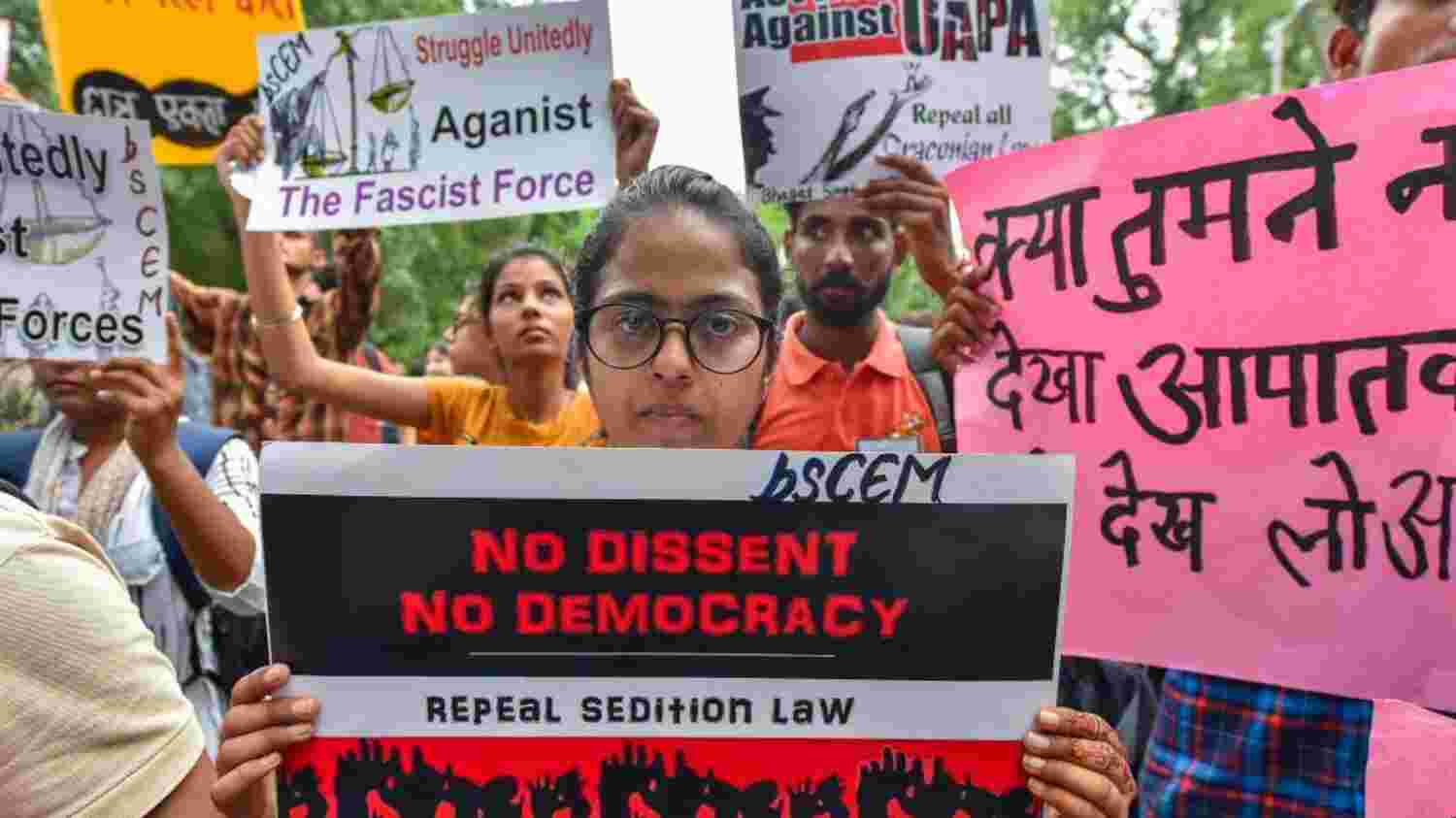Voice of the people

Since its inception, Section 124A of the Indian Penal Code has been a matter of much controversy. The 'sedition law' as it is more commonly known, has been challenged numerous times on its constitutional validity with many legal thinkers contending that the law has a suppressive effect on an individual's freedom of speech and expression. The law is based on the older British Sedition Act of 1661. Later, the law that was meant to be used to stifle India's march towards independence then became a fixture of its own legal system. The original wording of the law has allowed for it to be continuously misused as there is enough ambiguity in its scope to be able to suppress a wide range of activities that those in power may wish to crack down on. In 1962, the Supreme Court stepped in for the first time to weigh-in on the law as part of the Kedar Nath vs State of Bihar judgment. While the SC did ultimately uphold the law, they narrowed down its application to "acts involving intention or tendency to create disorder, or disturbance of law and order, or incitement to violence." This is important because it narrows down the scope of sedition to speech that actually incites disorder or violence against the government. Simply criticising the government or leader cannot be reasonably considered an incitement to disorder or violence. The court also noted that sedition only applies to the institution of the government itself and not any specific party. While this did serve to narrow down how sedition was defined, in practice these new guidelines were slow to trickle down from the highest court. The mode of determining sedition remained and still remains limited to a short-sighted examination of the supposedly seditious text or speech without any reference to the actual effects of said seditious speech. In recent times, the use of sedition law has become so rampant that the National Crimes Record Bureau (NCRB) recorded a 160 per cent rise in sedition cases between 2016 and 2019. A related fact to note is that for the same period, the rate of conviction in such cases dropped from 33.6 per cent to 3.3 per cent. This showed that courts examining such sedition cases were likely to throw out such cases on grounds of not satisfying the conditions required to prove sedition. While this is good news for those charged under sedition, it is not a real solution to the problem. The problem is that even if a person were to be freed later on by the court, the sheer fact that they can be targetted in the first place through a narrow application of the law has a chilling effect on the freedom of speech and expression. In such a case, the conviction of dissidents is no longer necessary to actually stifling the dissidence. But there may be some relief after all, especially for the Indian media which has found itself the target of the law quite frequently in recent days. After much clamour for reform or a relook at the sedition law, the Supreme Court in a recent case involving the Andhra Pradesh police and news channels TV5 and ABN is set to have another go at Section 124A. The Andhra police essentially registered a 'suo moto case' against the two broadcasters for broadcasting a programme in which the government and State Chief Minister was criticised by an opposition leader in the context of India's ongoing COVID crisis. While the SC has not stopped the Andhra Pradesh police from moving ahead with its investigation, it has put a stay on any 'coercive proceedings' against the two channels. The case has galvanised the SC to take another look at the sedition law, particularly its interpretation in regards to the rights of print and electronic media to communicate information that is critical of the government. The expectation at this point is not that the SC is considering whether to scrap the law altogether or not but rather whether new guidelines can be introduced to make the law more 'constitutional' in its application. If a journalist has to think twice before reporting truthfully on a matter for fear of getting arrested, then they clearly are not able to do their job as the fourth pillar of a healthy working democracy. To say the least, this is a definite start to a much-desired change.



